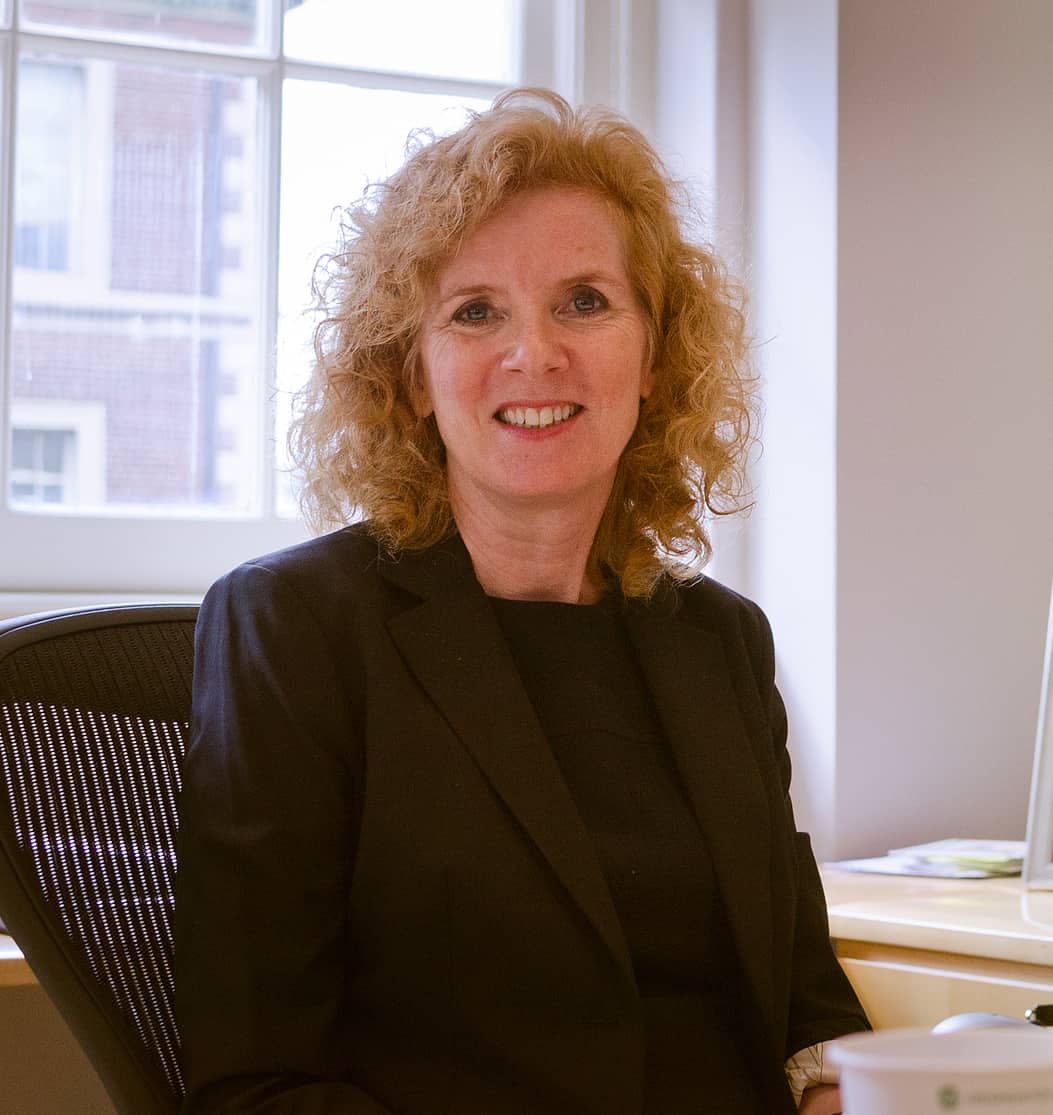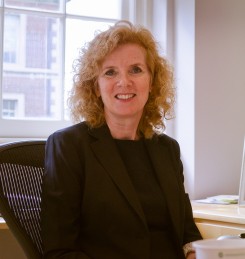The provost is the second-most-important person in the university’s administration — overseeing all financial and academic matters as well as mediating high-profile student conflicts. After the president, the provost is the most visible administrative figure when it comes to student issues. On September 2, Cheryl Regehr became provost for an 18-month term, succeeding Cheryl Misak. Regehr just concluded her term as vice-provost academic, and previously served as dean of the Faculty of Social Work. Prior to joining U of T’s teaching staff in 1999, Regehr had an impressive career in the fields of emergency mental health, law, and social work — the latter is where she currently conducts academic research. She held a number of high-profile positions, including director of the Crisis Response Team at Pearson International Airport. She hopes her experience both inside and outside of the university will help her guide the school. The Varsity sat down with Regehr to discuss her plans for the next 18 months.
The Varsity: Basically the idea behind this interview is to let students know about the new provost: who you are, what your priorities are, what you hope to accomplish. I also want to talk to you about few of the things Professor Misak was working on — how you plan to tackle those. So just to start, what are some of the priorities you have over the next 18 months?
Cheryl Regehr: Well, first of all, it has been an incredible honor to have this kind of a leadership position over this amazing university: University of Toronto is a tremendous university. To begin with, there’s an obligation to just making sure it continues to be a great place for learning so a priority is to ensure there is an environment in which faculty members can continue to thrive and do exciting new things and where students can be involved and have wonderful learning experiences.
TV: Do you have any specific projects you are hoping to tackle? Anything you want to look back on in 18 moths and say…
CR: Yeah, so I mean one of the things that I’m really committed to is student engagement, both in the university and outside the university and in our community. So we have some fabulous opportunities for student engagement now. Many programs have practicums or have some kind of learning opp. through lots of co-curricular activities for students, and then we also have service learning courses. One of the things that I want to continue to work on building with people is enhancing the number of opportunities we have like that for students to get out of the university and tackle some of the real problems our society and our societies face.
TV: You have extensive background in terms of the academic side of the university, but I was wondering if you could comment a bit on your plans for the operational side, the student side, because those are areas that you haven’t been as focused on as a dean, or as
vice-provost academic?
CR: Being a dean is a great thing, and being a dean of a single-department faculty is a great thing because it’s really a kind of close-to-the-ground deanship. In that particular role, I was heavily engaged with students and the student societies, and I was engaged with the operations, the budget, and the building, and everything else.
TV: In terms of the operations, if I could just clarify. U of T obviously has a number of new buildings that are going up; there’s the Faculty of Architecture, the Faculty of Law, the Innovation Complex at UTM. What kind of experience do you have overseeing such large capital projects?
CR: We work as a team, so we have people who have huge expertise in overseeing capital projects. I have been involved in the committees that are looking at new buildings coming on line, from the perspective of: How does this fit with the academic mission? And so, I’ve been doing that as vice-provost academic programs. So that experience, plus really relying on the team and what everybody has to bring to the table. I’m confident we’ll be able to manage
those projects.
TV: As you know, the provost often works directly with the students’ union and various other student groups. One of the things that’s going on right now is the mediation over the fee diversion question and the delay of the student commons project. How do you plan to try and resolve this ongoing issue between the several students’ unions?
CR: An important thing is bringing people to the table and getting people to be able to talk about it. Right now, there is some planning underway about a student societies summit and that planning is being discussed with various people at this point. Once that gets established, that information will be coming out very shortly.
TV: If I may though…in June there was a meeting between the student societies and the student union mediated by Professor Langille at the direction of the provost, and they met for seven hours and there was no change in bargaining position. So how would a student society summit be different from mediation session?
CR: Right now, the details are being worked out, so I don’t want to put them out there because there are various people who want to be involved in the process of setting
it up.
TV: Okay. And the student commons has been delayed for 12 months. Is the goal to try and resolve this within the next 12 months? Is that the timeline?
CR: The timeline is to try and resolve it as quickly as possible.
TV: What do you see as a potential middle ground between the union’s position on one hand — which is: “We absolutely do not want the student societies to leave,” and the student societies’ position on the other hand — which is: “We want nothing except to leave.”
CR: Well, I wouldn’t want to presuppose the outcome of this, so I won’t talk to a middle-ground right now. I’ll say wait and see how people work on this collaboratively, what they come up with. I’m open to a wide range of outcomes.
TV: As you know, the senior administration is in the midst of a large transition; we’ve got a new president, of course a new provost, a new dean of Arts and Science; for university stakeholders that are concerned about stability, what would you say in the midst of the transition? How are things going?
CR: I think that this is a really smooth transition. In Professor Gertler we have someone who knows the university very, very well; so that makes for a very nice transition. Similarly, I have been around the university and I know a lot of the stakeholders and the faculty colleagues. I’ve started working with a number of the students already. We just have very strong leadership at all levels of the institution, and that strong leadership at these various levels of the institution continues. And so as we look at transitioning into the senior leadership roles, I think there’s going to be a great deal of stability.
TV: There has often been friction between the students’ union and the office of the provost. How would you, as someone with a background in mediation, how would you go about setting a new tone, or trying to change what I would say has been over a decade of difficult relations?
CR: Well I feel really hopeful about my ability to work with student leadership and student leadership’s ability to work with me. I have great faith in a collaborative relationship, I’ve had the chance to meet with some student leaders already around this. I think what’s important is that we’re all interested in the same goal, and our goal is to create a wonderful learning environment for students. And so we need to find ways of being able to find solutions together — and I feel if we come to the table from that perspective, saying: “How can we work together to find solutions to these challenges that we face?” I’m hopeful and excited about what we can do together.
TV: Specifically, as I’m sure you’re aware, the undergraduate students union, Graduate Students’ Union (GSU), and some of the other unions have had concerns about some of the fees that have been charged to students, and have argued that some of them are not in compliance with the Ministry of Training Colleges and Universities’ policies on ancillary fees. Have you had a chance to meet with the student unions yet?
CR:Not on this issue, no. The university last year underwent a review of student fees and looked at compliance with MTCU around that. I have confidence that the people who led that review did so in a way that was rigorous. If there are continuing concerns, then we’ll go back and look at that again. It was quite an extensive process that was undertaken last year.
TV: Can you tell me a little bit about your background, what is something students might not know about you?
CR: My parents were Special Needs foster parents for the Children’s Aid society of Toronto. And I was in a home that was committed to ensuring the care and success of children that came with many kinds of challenges. As a social worker I was involved in areas of emergency mental health and in forensic mental health. I think that what has been absolutely wonderful for me in coming back and doing a PhD is being able to integrate life experiences, professional experiences and academic experiences.
TV: Do you have a favourite spot on campus?
CR: I quite love philosopher’s walk. It’s a gorgeous spot.
TV: What do you wish more students knew about? What is underutilized here at U of T?
CR: I wish that more students knew about the breadth of extracurricular activities that are available. I think students are aware of the breadth of research that happens here and the kind of reputation that we have internationally and nationally. I hope students are aware of the tremendous respect that this university has outside of the university and that they realize that their university degree from the University of Toronto is meaningful and is respected.
This interview has been condensed for length and clarity.



